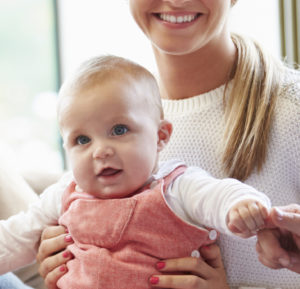Child-Parent Psychotherapy (CPP) is a therapeutic intervention specifically designed for children from birth through age 5 who have experienced at least one traumatic event. Such traumatic events may include maltreatment, the sudden or traumatic death of someone close, a serious accident, sexual abuse, or exposure to domestic violence. These experiences can profoundly impact a child’s behavior, attachment, and mental health, potentially leading to conditions such as post-traumatic stress disorder (PTSD). CPP’s primary goal is to support and strengthen the relationship between a child and their parent (or caregiver), using this relationship as a foundation to restore the child’s sense of safety, secure attachment, and emotional well-being. Additionally, CPP aims to improve the child’s cognitive, behavioral, and social functioning.
How CPP Works
The structure and focus of CPP sessions are tailored to the child’s developmental stage and the specific type of trauma they have experienced.
- Infants and Younger Children
With infants, the child is present during the sessions, but the primary focus is on the parent. The therapist works with the parent to help them understand how both their own and the child’s experiences may impact the child’s development and functioning. The therapist guides the parent in responding to the child’s needs in a way that promotes healthy development. - Older Children and Toddlers
For toddlers and older children, the child becomes a more active participant in the therapy sessions. Play is often incorporated as a means of facilitating communication between the child and the parent. Through play, the child can express feelings and experiences that might be difficult to articulate verbally, and the parent can learn to respond in ways that support the child’s emotional and psychological needs.
Addressing Parental Trauma
In cases where the parent has their own history of trauma that may interfere with their ability to respond to their child, CPP offers additional support. The therapist helps the parent to recognize how their trauma history might be affecting their perceptions and interactions with their child. The therapy provides the parent with new, developmentally appropriate strategies for interacting with their child, fostering a healthier, more supportive relationship.
Duration and Structure of CPP
CPP typically involves weekly sessions that continue for approximately one year. The therapy is conducted by qualified professionals, including master’s- or doctoral-level psychologists, master’s-level social workers or counselors, or supervised trainees. The sessions are guided by a CPP treatment manual, such as “Don’t Hit My Mommy!,” which provides a structured approach to addressing the complex needs of children and their families who have experienced trauma.
Summary
Child-Parent Psychotherapy (CPP) is a critical intervention for young children who have experienced trauma. It focuses on the parent-child relationship as the primary means of restoring the child’s sense of safety and promoting healthy emotional, cognitive, and social development. Through weekly sessions guided by trained professionals, CPP addresses the unique needs of each child and family, helping to rebuild attachment bonds and improve behavioral regulation. By supporting both the child and the parent, CPP provides a comprehensive approach to overcoming the effects of trauma and fostering resilience.
Frequently Asked Questions (FAQs)
What is Child-Parent Psychotherapy (CPP)?
Child-Parent Psychotherapy (CPP) is a therapeutic intervention designed to help young children (from birth to age 5) who have experienced trauma. It focuses on strengthening the relationship between the child and their parent or caregiver to support the child’s emotional, behavioral, and cognitive recovery.
Who can benefit from CPP?
CPP is beneficial for children who have experienced traumatic events such as abuse, neglect, the death of a loved one, or exposure to domestic violence. It is also helpful for parents who may have their own history of trauma that impacts their ability to effectively support their child.
How does CPP differ from other forms of therapy?
CPP is unique in its focus on the parent-child relationship as a primary vehicle for healing. It involves both the child and the parent in therapy sessions and tailors the therapeutic approach to the child’s developmental stage and specific traumatic experiences.
What does a typical CPP session involve?
A typical CPP session varies depending on the child’s age. For infants, the focus is on helping the parent understand the child’s needs and how trauma may be affecting them. For older children, sessions may include play as a way for the child to express their feelings, with the parent learning to respond in supportive ways.
How long does CPP typically last?
CPP usually involves weekly sessions over the course of about one year. However, the duration may vary depending on the specific needs of the child and family.
What qualifications do CPP therapists have?
CPP therapists are typically master’s- or doctoral-level professionals, such as psychologists, social workers, or counselors. They are trained in CPP and use a treatment manual to guide the therapy process.
Links:
